The US has recently released its International Religious Freedom Report for 2022 and has listed attacks against religious minorities including Muslims and Christians in India, the world’s most populous democracy. The report describes the status of religious freedom, government policies violating religious beliefs and practices of groups, religious denominations and individuals, and U.S. policies promoting religious freedom in nearly every country and territory throughout the world.
The report’s release comes a month before Indian Prime Minister Narendra Modi travels to Washington for his first official State visit, which will include a state dinner at the White House. He has previously visited the U.S. on five other occasions classified as “working visits.”
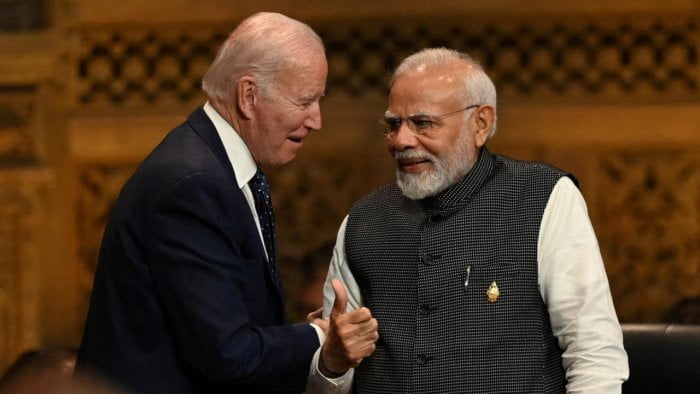
Indian Government has yet again dismissed the findings of the report calling them “biased,” and “motivated.” External Affairs Ministry spokesperson Arindam Bagchi said the Commission continues to regurgitate such comments and India rejects the “misrepresentation of facts” which only serves to “discredit USCIRF itself.”
These contradictory actions of the USA have given rise to speculations if its foreign policies actually reflect its vision towards promoting religious tolerance around the world or if it’s just a procedural move, where its foreign policy is much backed by the USA’s interest in the South Asia region especially with the rise of China.
“The US Commission on International Religious Freedom continues to regurgitate biased and motivated comments about India, this time in its 2023 annual report. We reject such misrepresentation of facts which only serves to discredit USCIRF itself. We would urge USCIRF to desist from such efforts and develop a better understanding of India, its plurality, its democratic ethos and its constitutional mechanisms,” said Arindam Bagchi.
The USCIRF requested that the U.S. State Department include India as a “country of particular concern” for religious freedom with several other countries in its yearly report on the subject. Similar suggestions have been made to the State Department in 2020 also, however, they have not been followed after 2020.
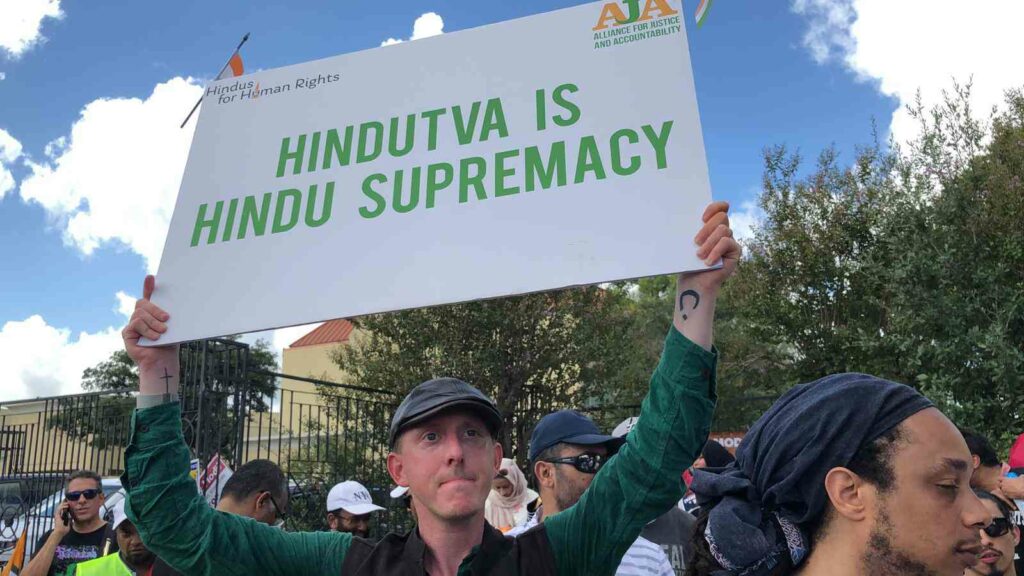
Thus, these contradictory actions of the USA have given rise to speculations if its foreign policies actually reflect its vision towards promoting religious tolerance around the world or if it’s just a procedural move, where its foreign policy is much backed by the USA’s interest in the South Asia region especially with the rise of China.
What does the report say?
The Indian constitution defines India as a secular nation, with an Indianised version of secularism where the state respects every religion equally but promotes none. However, the key findings of the report posit a different picture.
The report highlights incidences of violence by law enforcement authorities against members of religious minorities in multiple states, including plainclothes police in Gujarat publicly flogging four Muslim men accused of injuring Hindu worshippers during a festival in October, and the Madhya Pradesh State government bulldozing Muslim-owned homes and shops following communal violence in Khargone in April.
It highlights how religious conversion is legally prohibited in multiple states, how religious minorities are attacked regularly, and how Muslims have alleged systemic discrimination—including “cow vigilantism,” which often results in attacks for alleged cow slaughter or beef trade.
The Indian constitution defines India as a secular nation, with an Indianised version of secularism where the state respects every religion equally but promotes none.
The report also highlights incidences of violence against Christians in India. It mentions that in multiple states, police arrested Christians accused of forcing others to convert. In its report covering events during the year, the nongovernmental organization (NGO) Indian American Muslim Council (IAMC) said Christians were “increasingly targeted using these ant conversion laws,” as “allegations of forced conversion, no matter if false, have led many Christians to be attacked, arrested and detained by police.”
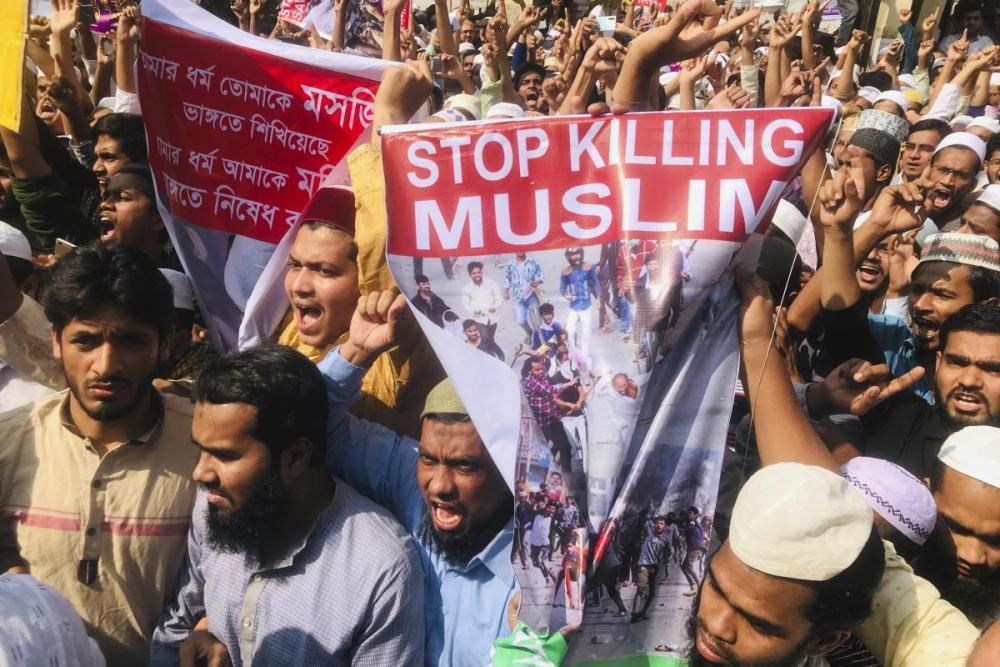
The report mentions Attacks on members of religious minority communities, including killings, assaults, and intimidation, which occurred in various states throughout the year.
The U.S. Commission on International Religious Freedom, earlier this month once again recommended that the State Department put India on a blacklist over its record. However, that has not been done yet as the US is all set to host PM Narendra Modi for his state visit next month.
These contradictory actions of the USA have put these reports and their impact on the regions of the world especially with the allies of the USA into speculation about the USA’s commitment to the cause of Religious freedom and tolerance around the world.
When asked how the U.S. would address these concerns with the Indian government ahead of Modi’s visit next month, the official told reporters, “We’re continuing to encourage the government to condemn violence and hold accountable and protect all groups who engage in rhetoric that’s dehumanizing towards religious minorities and all groups who engage in violence against religious communities and other communities in India.”
These contradictory actions of the USA have put these reports and their impact on the regions of the world especially with the allies of the USA into speculation about the USA’s commitment to the cause of Religious freedom and tolerance around the world.
US foreign policy of India and its interest in the geopolitics
Considering the most recent steps the Commission has taken regarding India, in the Commission’s 2002 report, India has downgraded from a nation “meriting scrutiny as a candidate for a CPC [Country of Particular Concern] designation” to a “recommended CPC” in 2003 and 2004. The State Department disregarded these proposals and never gave India a CPC designation. The majority of the commissioners decided to classify India as a CPC, despite neither the 2003 nor the 2004 Commission proposals being unanimous. They cited the massacres in Gujarat in 2002, which some have referred to as a state-sponsored pogrom and resulted in the deaths of almost 2,000 Muslims, as well as the activities of the “BJP-led government in Gujarat led by Minister Modi,” in reaching this determination
In 2005, the US Department of State used a 1998 International Religious Freedom Act (IRFA) provision to revoke Modi’s tourist/business visa citing section 212 (a) (2) (g) of the US Immigration and Nationality Act. The IRFA provision “makes any foreign government official who ‘was responsible for or directly carried out, at any time, particularly severe violations of religious freedom’ ineligible for a visa to the United States.“
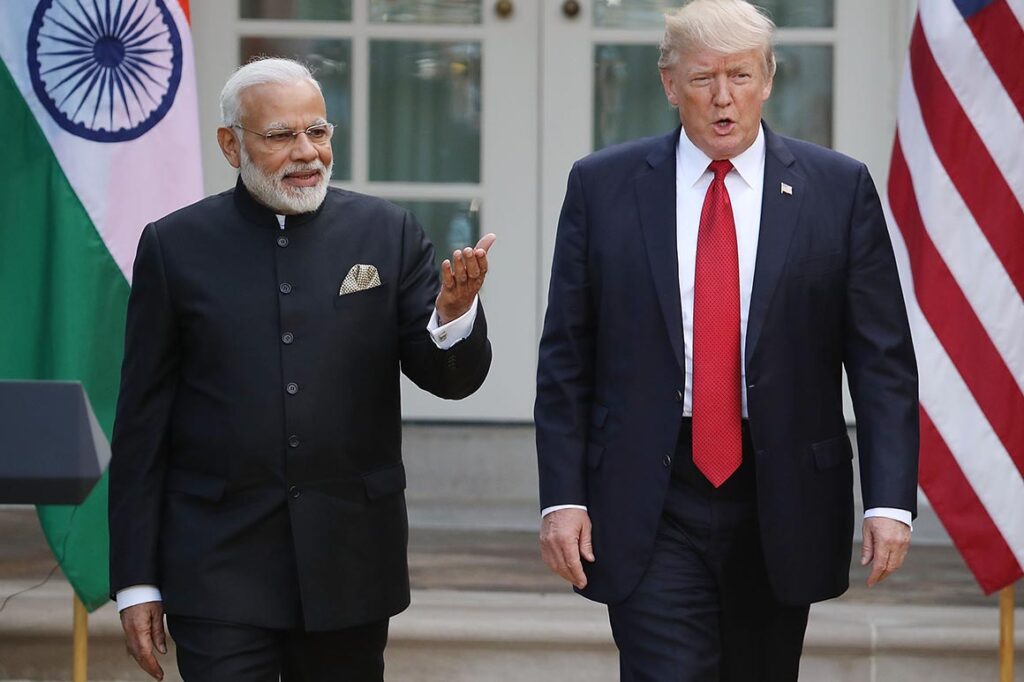
However, in contemporary times the US’s relationship with Narendra Modi has deepened especially after Donald Trump became the US President and continues with the Biden administration. It is partly because India being a great trade partner of the USA for the past many decades as well as from the USA’s interest in the geopolitics of Asia.
International Relations theorists have many times condemned US actions towards India where on the one hand the US publicly condemns India over religious intolerance but fails to discuss those issues with the officials over state visits and bilateral talks.
The reasons for this change in contemporary times come from the realpolitik nature of the USA’s foreign policy. With Russia’s expansionist policies, the USA stands in the face of a new cold war and on the other hand China’s rise in Asia has threatened the USA’s sole position of a guarantee of international security to Asia.
In this context, India seems to be a perfect ally for the USA with its immense markets and human resource, thus the USA appears to be drifting away from the cause of serving the purpose of the reports like these and securing its strategic interest in the region. In light of this policies and reports like these seem like a travesty. They are also opposed in countries like India where secularism has a different meaning added to which reports as these look like a project of neo-imperialism where the USA overlooks its conditions of religious intolerance.
Calling out India publicly but not taking any significant talks over the issues with Indian officials bilaterally also exposes the hypocrisy of the USA, where it is trying to play safe with its national interest and securing its potential ally in Asia overlooking the incidences of violence against the religious minorities in India at the same time calling out other countries like China over the same concerns.
In the India part of its most recent study, the USCIRF claimed that in 2022, conditions for religious freedom in India have continued to deteriorate. The U.S. Commission also urged the Biden administration to implement targeted sanctions, including the freezing of assets, against Indian government organisations and individuals accountable for “serious violations” of religious freedom in the nation. Additionally, it suggested that Congress hold hearings on the subject of religious freedom and bring it up at bilateral discussions between the US and India. However, the USA has refrained from taking any such actions.
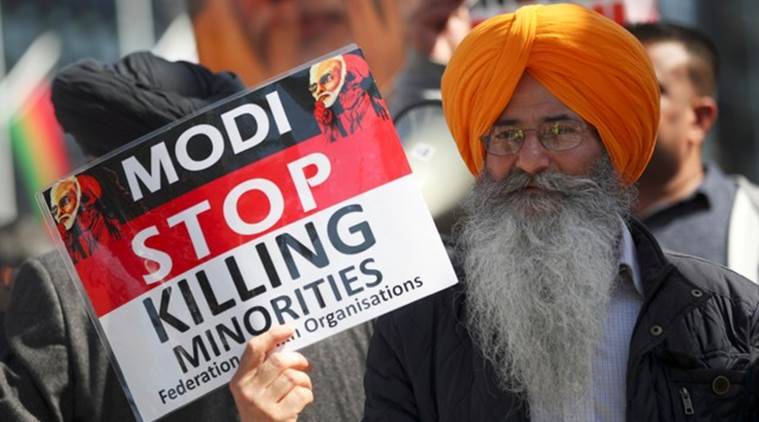
Thus in light of securing and fulfilling its strategic interests and commitment in the region to counter China the USA seems to be drifting away from its commitment to religious tolerance while making an exception for India and various organisations in India who are responsible for deteriorating acts of violence against minorities.
However, calling out India publicly but not taking any significant talks over the issues with Indian officials bilaterally also exposes the hypocrisy of the USA, where it is trying to play safe with its national interest and securing its potential ally in Asia overlooking the incidences of violence against the religious minorities in India at the same time calling out other countries like China over the same concerns.
About the author(s)
Preeti Patil is a learning enthusiast. She has completed her master's in Politics with a specialisation in International Studies from Jawaharlal Nehru University. She graduated in Electronics Engineering from RTMNU. Her area of interest is Gender studies, feminist security perspectives, Dalit feminism, Caste & diaspora & affirmative action policies.
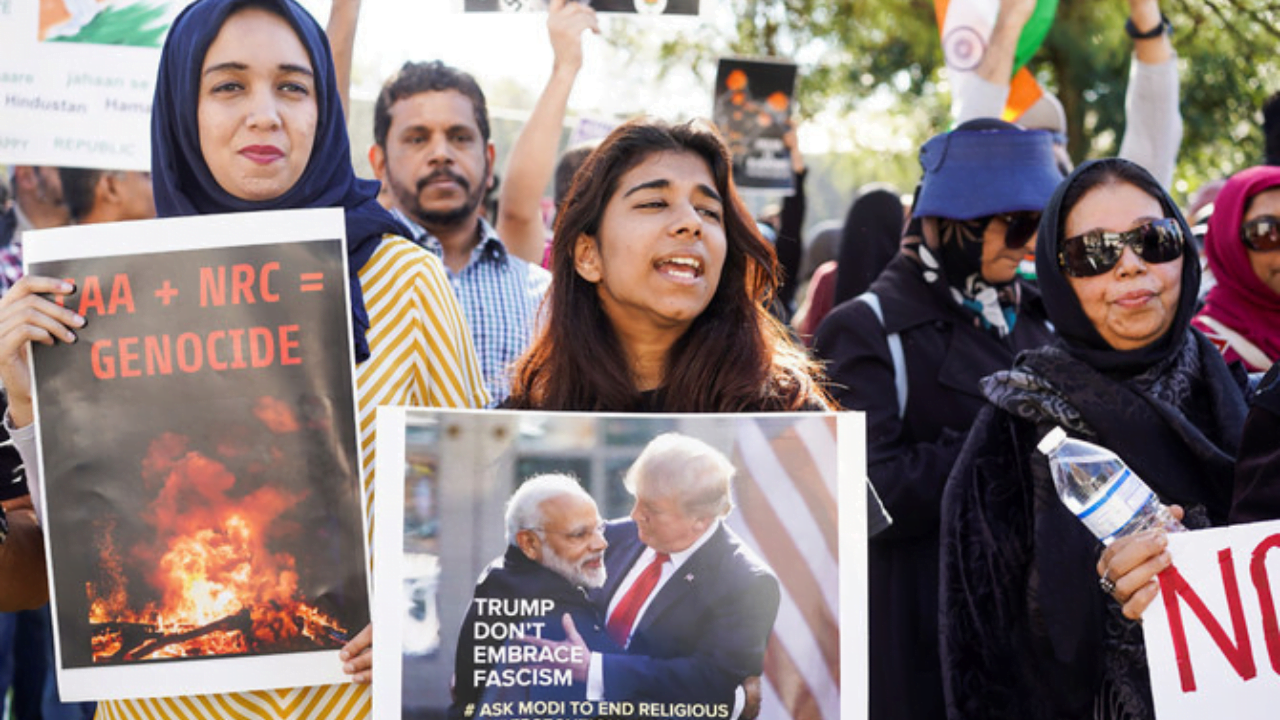

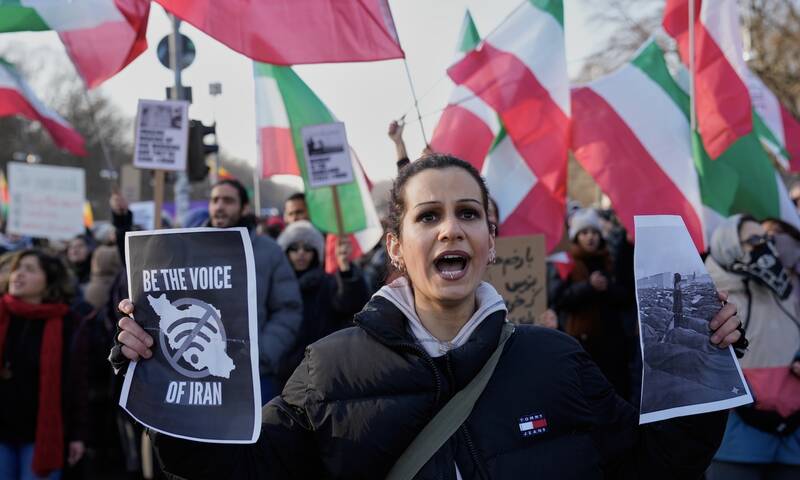



Comments:
Comments are closed.